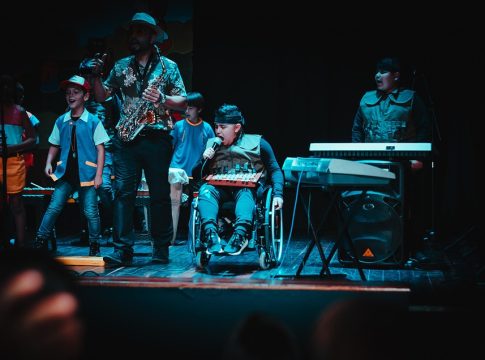Music festivals have been a cultural cornerstone for decades, offering an escape to euphoric soundscapes and communal experiences. From the iconic Woodstock of 1969 to modern electronic music gatherings that light up cities, the evolution of festivals has mirrored changes in society, technology, and musical tastes. Whether you’re a seasoned festival-goer or contemplating your first experience, understanding this transformation reveals why these events continue to matter in our lives today. They encapsulate not just music but also community, expression, and evolution. So, how did we get here? Let’s dive into seven epic transformations that music festivals have undergone over the decades.
1. The Birth of the Festival Culture
In the late 1960s and early 1970s, festivals emerged as a radical expression of youth culture. Events like Woodstock and the Monterey Pop Festival brought together counterculture ideologies and musical innovation. This was a time when festivals weren’t just about music; they were spaces for social change, freedom, and love. The festival culture was intimate—often small-scale, fostering a sense of community and shared beliefs among attendees.
2. The Commercialization Era
Fast forward to the 1980s and 1990s, and we see the commercialization of music festivals. Events began to be sponsored by major corporations, and ticket prices reflected this shift, often becoming exclusive experiences. While this allowed for more extensive line-ups and better promotions, it also led to concerns about the intended spirit of the gatherings, which many felt were compromised. Regardless, iconic festivals like Lollapalooza spearheaded this change, blending big-name artists with grassroots acts.
3. Technological Integration
By the early 2000s, technology began to play a significant role in the evolution of music festivals. From digital ticket sales to live streaming performances on platforms like YouTube, the accessibility of music festivals expanded dramatically. This era introduced festival-goers to apps that provided real-time schedules, enabling tighter planning and enhancing the overall experience. The integration of technology not only enriched the festivals but also connected global audiences, illustrating how music has become a borderless cultural phenomenon.
4. Inclusivity and Diversity
In the 2010s, there was a noticeable push towards inclusivity and diversity within festival line-ups and environments. Festivals like Coachella began to showcase a broader range of artists from different genres, ethnic backgrounds, and genders. This shift was crucial in providing a platform for marginalized voices in the industry. Advocates for equality challenged festival organizers to broaden their approaches, making the festival scene more representative. This evolution has inspired new festivals centered around highlighting diverse talent, such as Afropunk and Pride-based festivals.
5. Focus on Sustainable Practices
As the world became more conscious of climate change and sustainability in the 2020s, music festivals began to respond. Major events like Glastonbury and Bonnaroo started implementing eco-friendly initiatives, including waste reduction and renewable energy sources. Attendees now have more choices to engage with festivals that prioritize sustainability, reflecting a growing belief that enjoyment does not need to come at the cost of environmental responsibility. This transformation highlights a crucial intersection between culture and conservation, appealing to a generation that deeply values social responsibility.
6. The Rise of Virtual Festivals
The COVID-19 pandemic in 2020 shifted everything – including music festivals. With in-person gatherings halted, organizers turned to virtual platforms to connect with audiences. Festivals like Tomorrowland and Coachella experimented with online experiences that merged gaming and streaming, creating immersive environments where fans could enjoy performances from home. This transformation added a new dimension to festival participation, demonstrating resilience and innovation in the face of adversity. Even as restrictions eased, many festivals have retained virtual components to reach wider audiences.
7. Experiences Over Line-ups
In the mid-2020s, audiences increasingly prioritized experiences over headliners. Festivals focused on creating holistic experiences, integrating art installations, wellness activities, and culinary offerings alongside music. Events now often feature pop-up shops, wellness areas, and interactive art. This transformation aims to create a sense of belonging and shared enjoyment that transcends the music itself, inviting attendees to engage on multiple sensory levels, ultimately enhancing the festival vibe.
Crafting a memorable experience is more than just about the lineup; it’s about creating a space where connection happens. Festival-goers are no longer just looking to listen; they seek to immerse themselves fully in the moment.
Embracing the Festival Evolution
The evolution of music festivals reflects broader societal changes, from cultural movements and technological advancements to growing awareness of sustainability. Each transformation enriches our understanding of why music festivals are beloved by many. They serve not only as entertainment but also as progressive hubs for social dialogue and personal connections.
How have your festival experiences changed over the years? Whether it’s about the vibe, line-ups, or the sense of community, we’d love to hear your stories in the comments!

Covers viral stories, pop culture, and breaking celebrity news.
Bio: Jamie has a sharp eye for what’s buzzing online, tracking social media trends and entertainment headlines around the clock.

